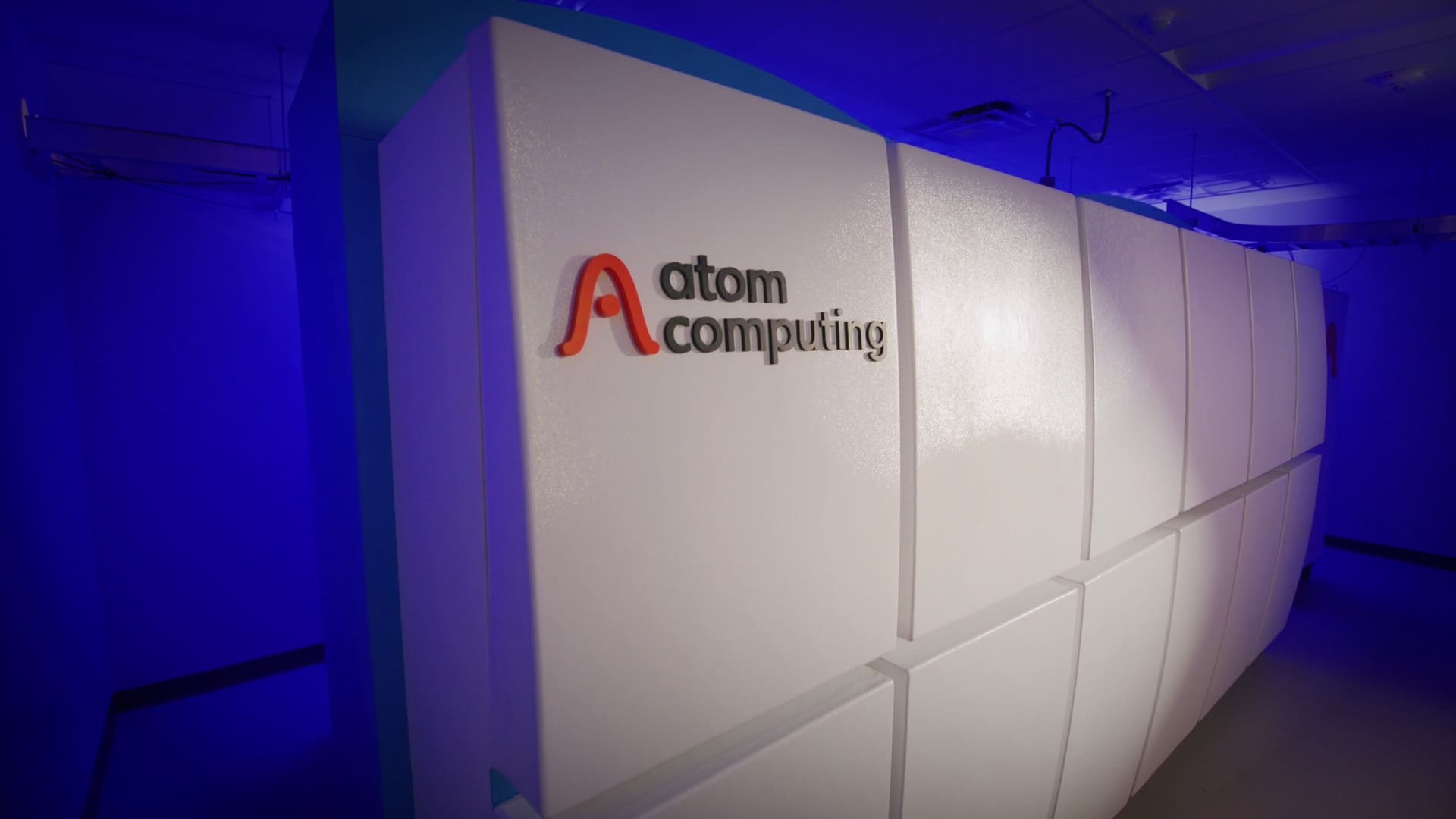Microsoft, in collaboration with Atom Computing, has announced a revolutionary advancement in the field of quantum computing: the development of a commercial quantum machine capable of operating with 24 entangled logical qubits, the largest number recorded to date. This system, available for orders starting now with deliveries expected in 2025, combines Atom Computing’s state-of-the-art neutral qubits with Microsoft’s qubit virtualization system, offering a robust platform for scientific research and industrial applications.
Neutral Qubits: The Foundation of Quantum Reliability
Atom Computing uses neutral atoms as qubits, a promising technology in the quantum realm. These qubits are manipulated using light pulses and held in precise arrays via lasers, enabling scalable architectures and full connectivity among qubits. Compared to other technologies, neutral atoms exhibit lower susceptibility to noise, higher fidelity, and are ideal for quantum error correction.
Recently, Atom Computing achieved a fidelity of 99.6% in two-qubit quantum gates on its commercial systems, the highest recorded for neutral atom qubits. This milestone enables efficient detection and correction of errors, which is crucial for performing reliable quantum calculations.
Advancements in Quantum Error Correction
Microsoft’s Azure Quantum platform combines Atom Computing’s qubits with its proprietary qubit virtualization system, allowing the creation of logical qubits from physical qubits. Logical qubits are essential for performing reliable calculations by detecting and correcting inherent errors at the physical level.
In a significant breakthrough, teams from Microsoft and Atom Computing succeeded in creating and entangling 24 logical qubits in a Greenberger-Horne-Zeilinger (GHZ) state. These logical qubits demonstrated a remarkable improvement in error rates, reducing physical-level errors from 42% to just 10.2% after implementing detection and correction systems. This advancement marks the first demonstration of loss correction in a commercial system based on neutral atoms.
Furthermore, 28 logical qubits, derived from 112 physical qubits, were used to perform calculations based on the Bernstein-Vazirani algorithm. The results showed greater accuracy compared to calculations performed with physical qubits, highlighting the potential for scaling quantum systems to achieve scientific quantum advantage.
Integration with Azure Quantum and Azure Elements
This new quantum machine seamlessly integrates with Azure Elements, a suite that leverages high-performance cloud computing (HPC) and artificial intelligence (AI) to accelerate scientific research. Its capabilities include:
- Generative Chemistry: Powered by AI, this tool allows for the rapid discovery of novel and synthesizable molecules, transforming research in material science and pharmaceutical development.
- Accelerated Density Functional Theory (DFT): Provides unprecedented speeds in modeling quantum-mechanical properties, vastly outperforming conventional DFT codes.
The combination of Azure Elements, logical qubits, and advanced AI models provides researchers with a comprehensive set of tools to tackle complex challenges in fields such as chemistry, material science, and more.
Driving Scientific and Industrial Innovation
The new system is not limited to scientific research; it also opens up possibilities for innovation across various industries. The quantum machine can generate unique datasets that can be used to train AI models for better performance or accuracy, providing companies with a powerful tool to address traditionally intractable problems.
Dr. Ben Bloom, CEO of Atom Computing, emphasized the impact of this collaboration:
“We are excited to continue our collaboration with Microsoft, which has already achieved significant milestones in quantum computing. By combining our state-of-the-art neutral atom qubits with Microsoft’s qubit virtualization system, we can now offer reliable logical qubits in a commercial quantum machine. This system will enable rapid advancements across multiple fields, including chemistry and material science.”
Availability
The commercial quantum machine, incorporating cutting-edge technologies from Microsoft and Atom Computing, is now available for orders, with deliveries starting in 2025. This offering represents an important step towards realizing the potential of quantum computing, providing researchers and industries with a reliable platform to drive transformative discoveries.
As the landscape of quantum computing evolves, this collaboration stands out as a key milestone, paving the way for new advancements in science and technology.
via: Microsoft Azure

